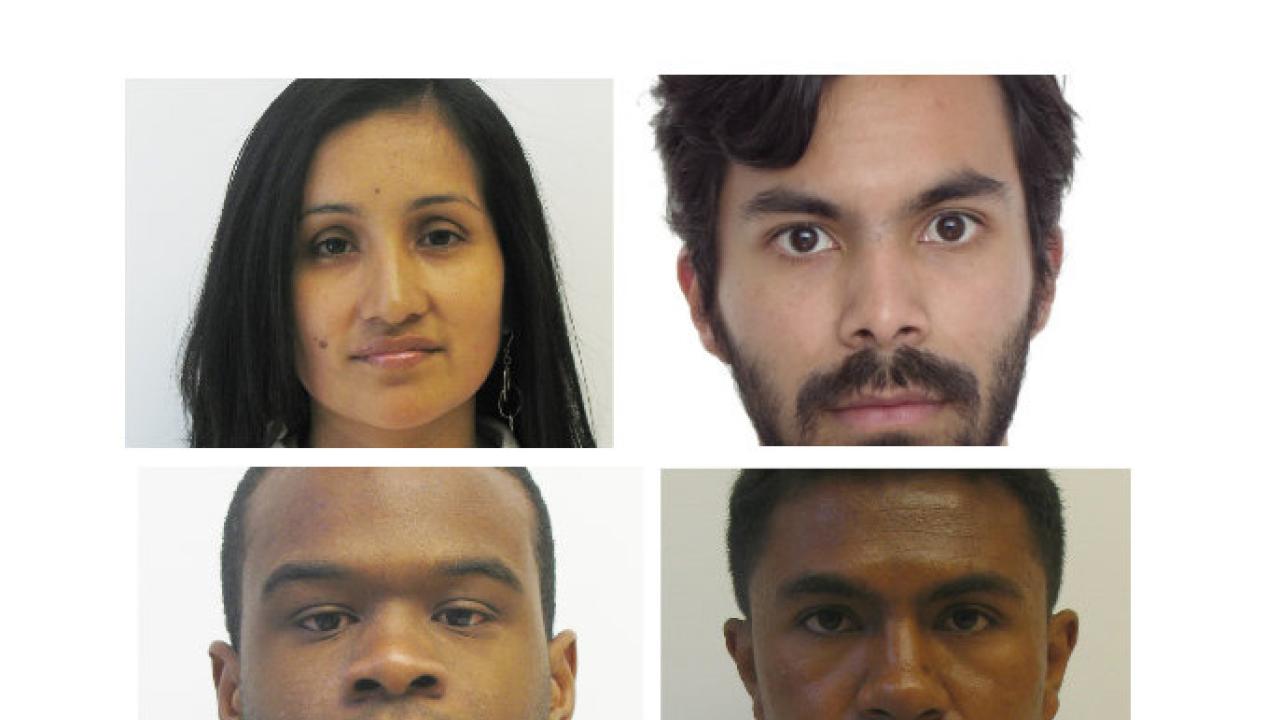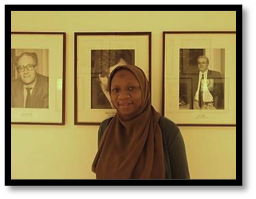
On August 2, a special event commenced in the Denardo Room at ICTP's Adriatico Guesthouse: ICTP completedthe first training session of its Training EGNOS GNSS in Africa (TREGA) project. The room was filled with smiles and excitement as the participants were called one-by-one to the front of the room to receive their certificate and a congratulatory hand shake from the TREGA project leader Sandro Radicella, ICTP scientist and leader of the "sister" project SAFIR (Satellite navigation services for African Region).
TREGA is a joint project between the European Commission (EC) and ICTP to help improve Africa's aviation sector. The European Geostationary navigation Overlay Service (EGNOS) is one of the leading projects in the Global Navigation Satellite System (GNSS) area devoted mainly to aviation. Radicella is organizing TREGA training sessions this summer and in early 2014 with the purpose to train future members of the EGNOS-AFRICA Joint Programme Office (JPO), which was created by the SAFIR project.
Each session lasts several weeks and consists of an intense series of lectures on topics like space project management, GNSS and EGNOS technology, and legal and regulatory matters.
The first TREGA training session, held in July, consisted of two modules: "Space Projects Management" and "Legal and Regulatory Aspects". Experts from the Instituto Superiore Mario Boella (Turin, Italy) taught the first module, which covered project planning and risk management and how they pertain to the European space management standards. The second module, "Legal and Regulatory Aspects", was presented by experts from PILDO Labs (Barcelona, Spain), who taught how the African aviation sector could apply the concepts of the first module toward potential EGNOS operations within the Africa Sub-Saharan Airspace using service provisions, equipment installation, operational approval and more.
This summer's training comprised about fifteen African professionals with at least five years of experience in aviation-related fields. Here's what some of the participants had to say about the programme:
Dr. Hina Alicha Aloli Lapie, Niger:
 Aloli Lapie says that when she returns to Senegal,
she hopes that what she learned through TREGA will help her to
obtain a position as the legal advisor to the EGNOS-African (JPO)
.
Aloli Lapie says that when she returns to Senegal,
she hopes that what she learned through TREGA will help her to
obtain a position as the legal advisor to the EGNOS-African (JPO)
.
"What I liked most about the programme was that the professors were very attentive to my needs and very professional."
Aloli Lapie is the only woman in the group and is expecting her first child this October, but that didn't stop her from entering and completing the programme. She says she also enjoyed the opportunity to meet new people and share thoughts about Africa's future.
Boukary Malam, Niger:
 Like
Lapie, Malam was recruited for the TREGA programme by JPO. He came
as a representative for his institution, the Agency for air
navigation safety in Africa and Madagascar (ASECNA) and expressed a
strong belief in the need for a common set of legal standards
throughout Africa.
Like
Lapie, Malam was recruited for the TREGA programme by JPO. He came
as a representative for his institution, the Agency for air
navigation safety in Africa and Madagascar (ASECNA) and expressed a
strong belief in the need for a common set of legal standards
throughout Africa.
"I really appreciated this training and how it covered regulation," Malam says. "We have many things to do after this training, such as aligning our regulation because if you want to get something done you must first make sure it follows legal standards."
Malam says that the TREGA "team" of participants worked very well together and that it was important for people from different countries to meet and discuss in the way that TREGA provides. In order to advance progress in African aviation, he says, people like those in the TREGA team, "need to join forces."
Nzakimuena Manuel, Angola:
 Manuel has been part of the African aviation
business for over 20 years. He says he wants to improve aviation
safety in Africa and likes how the TREGA programme touched upon the
many aspects of European aviation safety.
Manuel has been part of the African aviation
business for over 20 years. He says he wants to improve aviation
safety in Africa and likes how the TREGA programme touched upon the
many aspects of European aviation safety.
"Safety is a main problem for aviation in Africa," Manuel says. "I appreciated learning how we can adapt the good parts of European aviation safety to African aviation safety."
Sant'Anna Abael Nasser, Togo:
 Abael Nasser, who works at ASECNA, says he focuses
on issues similar to what is discussed in the TREGA training
session, and that it was instructive for him to come and see what
people from different countries thought.
Abael Nasser, who works at ASECNA, says he focuses
on issues similar to what is discussed in the TREGA training
session, and that it was instructive for him to come and see what
people from different countries thought.
"Different people from different countries, expertise and backgrounds made for a forum with a high-level of discussion," he says. "It makes you realize how everyone's thinking and why. And it helps you think about the main challenges, which better prepare you to then meet those challenges."
After completing the TREGA training session, he says he feels more prepared to tackle the challenges that African aviation faces, such as sustainability.
"I want to thank everyone at ICTP who helped with this project," he says. "The courses were interesting and relevant and the lectures were very open-minded."
Dr. John Momoh, Nigeria:
 Momoh
works for the Nigeria Space Agency and says that the training
session opened his eyes to the European ways of contracting and
management. He says that he plans to apply what he learned at ICTP
to his work on the satellite-based augmentation systems for Africa
(SBAS), which is how he initially became involved with TREGA. Like
Abael Nasser, Momoh thought that one of the most advantageous
points of the programme was the different types of people
involved.
Momoh
works for the Nigeria Space Agency and says that the training
session opened his eyes to the European ways of contracting and
management. He says that he plans to apply what he learned at ICTP
to his work on the satellite-based augmentation systems for Africa
(SBAS), which is how he initially became involved with TREGA. Like
Abael Nasser, Momoh thought that one of the most advantageous
points of the programme was the different types of people
involved.
"The programme was helpful because it made new connections with people from different parts of Africa," Momoh says.













